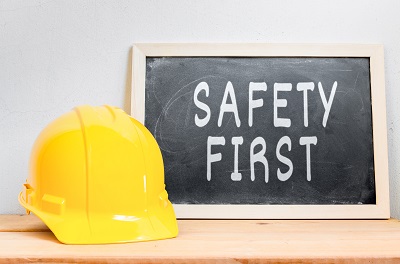 Running a business means creating a friendly, welcoming environment focused on the customer. No one should feel unsafe by entering your business. Still, should something happen to them, they might blame the business for their losses. Your commercial general liability insurance could help cover customer losses. What’s this coverage, and why is it important to carry?
Running a business means creating a friendly, welcoming environment focused on the customer. No one should feel unsafe by entering your business. Still, should something happen to them, they might blame the business for their losses. Your commercial general liability insurance could help cover customer losses. What’s this coverage, and why is it important to carry?
No business wants to cause harm to customers. However, there are times you cannot predict when accidents strike. It is the job of your liability insurance to step in and cover these losses. Setting up your coverage takes time. Devote ample attention to the policy in which you invest.
Why You Need Liability Insurance
Customer service is clearly your business’s top priority. If something infringes on that duty, commercial insurance might make up the difference. Liability coverage is there in case your action also impacts your customers.
First, general liability insurance can protect your patrons. Indeed, this is the primary goal of coverage. If your actions harm clients, your coverage can help you repay them for their losses. Coverage usually comes in a couple of forms.
- Bodily injury protection extends to customers who sustain harm when patronizing the business. They might need help paying their medical costs, or request income supplements. If the accident occurred in a covered scenario, your policy can provide protection.
- Property damage insurance covers harm the business might cause to customer belongings. Let’s say as a dry cleaner, you damage a client’s heirloom table cloth. Your property damage coverage might help pay to replace the lost items.
The harm you cause the customers might equal financial or personal losses to them. With the help of your liability coverage, they can recover from their losses.
By default, your policy also extends to your business’s individual security.
Look at it in the context of commercial losses. If you have to compensate a customer’s losses out of pocket, that’s a profit loss. Given that claims could reach thousands of dollars, you risk ruining your business. As a smart business owner, let this coverage protect you at times when you don’t want to put your success on the line. It’s not only coverage for clients, but also security for the future.
Tailoring Coverage to Your Operation
Retail businesses generally sell products from a storefront. Therefore, they likely have a lot of foot traffic within their property. They also might let customers use certain tools which might cause harm. Liability coverage should therefore, address the unique needs you face within your business. How can you go about ensuring you get appropriate protection?
First, take your industry needs into account. Restaurants will have different needs from clothing stores. They have unique operating risks to which they might be more susceptible. Ensure your insurance agent tailors your coverage to the specifics at your business.
You can often purchase your general liability policy as part of a Business Owners Policy, or BOP. BOPs contain several of the most common elements of business insurance in one place. They almost always contain general liability coverage as part of the package. Generally, your policy can provide, at minimum, $1 million in liability coverage. However, you can increase this figure, usually upwards of $2 million to $3 million. You often can also add endorsements or riders to apply coverage to specialty damages.
Sometimes, you can also buy umbrella insurance to expand on your general coverage. This can expand the financial limits of general liability coverage. Not only that, it can also cover losses not insured in your standard policy. While no liability insurance, umbrella included, will cover every potential accident, investing in this protection can help expand where you have protection.
Enforcing Workplace Safety and Decreasing Liability Risks
Regardless of how much liability insurance you buy, there’s a chance your coverage won't pay for certain liabilities. If a claim exceeds your policy limits, you could still face out of pocket costs. Uninsured accidents, like those committed intentionally, might cost the business as well. Therefore, you have a duty to keep liability risks as low as possible within the business.
Your coverage will best protect you at times when claims prove accidental, unpreventable or unanticipated. If you cannot prevent a claim, your insurer will likely understand it deserves coverage (exclusions notwithstanding).
As a result, you must enforce strict safety regulations in the business. Consumer safety law will likely provide some guidelines. However, keep a constant watch for situations that might prove unsafe to customers. Stop, look around, and consider the setting of your business. Are there places where someone might get hurt? Do certain practices raise property damage risks? How can you put safety practices in place?
At the end of the day, liability insurance can instrumentally protect the business. Nevertheless, you need to do what you can to prevent accidents on the premises. Contact your insurance agent to get Atlanta business insurance coverage that’s right for you.